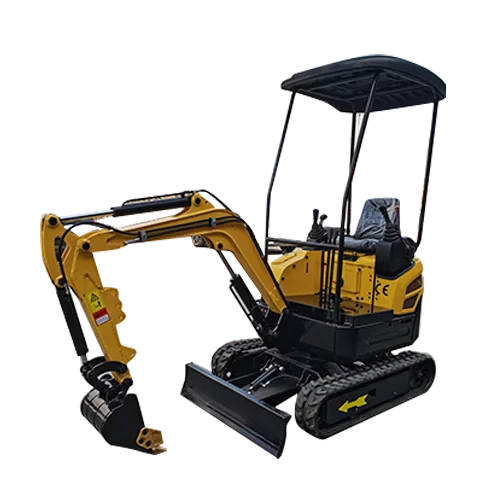Welcome to My Blog!
Before we dive into the content, I’d love for you to join me on my social media platforms where I share more insights, engage with the community, and post updates. Here’s how you can connect with me:
Facebook:https://www.facebook.com/profile.php?id=100087112105480
LinkedIn:https://www.linkedin.com/showcase/99327366/admin/dashboard/
Now, let’s get started on our journey together. I hope you find the content here insightful, engaging, and valuable.
Introduction

Small excavator machines, often referred to as mini-excavators or compact excavators, have become indispensable tools across various industries. Their versatility, efficiency, and compact size make them ideal for a wide range of applications, from landscaping and construction to agriculture and utility work. In this blog post, we will delve into the top uses for small excavator machines, exploring their capabilities and benefits in detail.
Key Features of Small Excavator Machines
Small excavator machines possess several key features that contribute to their popularity and versatility:
- Compact Size: Their compact design allows them to access confined spaces and navigate tight work areas, making them ideal for urban environments and indoor demolition projects.
- Versatility: With a wide array of attachments, such as buckets, breakers, augers, and grapples, small excavators can perform diverse tasks beyond digging, including material handling, demolition, and landscaping.
- Efficiency: They offer a high power-to-weight ratio, enabling them to efficiently tackle demanding tasks despite their compact size.
- Maneuverability: Their articulated boom and tracks provide excellent maneuverability, allowing for precise control and operation in tight spaces.
Top 5 Uses for Small Excavator Machines
Landscaping and Gardening
Small excavators are invaluable tools for landscaping and gardening projects. They can be used to:
- Digging Holes: Efficiently dig holes for planting trees, shrubs, and other plants.
- Grading Land: Leveling land for patios, driveways, and lawns, ensuring proper drainage and aesthetics.
- Removing Stumps: Quickly and effectively remove tree stumps, preparing the area for new landscaping or construction.
- Creating Trenches: Dig trenches for installing irrigation systems, drainage pipes, or underground utilities, minimizing manual labor and reducing project timelines.
Construction
In the construction industry, small excavators play a crucial role in various tasks, including:
- Excavating Trenches: Digging trenches for foundations, utility lines, and drainage systems, ensuring precise depth and width.
- Demolition: Demolishing small structures, concrete slabs, and other debris, reducing labor costs and increasing efficiency.
- Material Handling: Loading and unloading materials, such as soil, rocks, and construction debris, improving productivity and safety.
- Backfilling: Filling in excavated areas with soil or other materials, ensuring proper compaction and stability.
Agriculture
Small excavators are versatile tools for agricultural applications, helping farmers and ranchers with tasks such as:
- Land Clearing: Removing brush, trees, and other obstacles to prepare land for cultivation or construction.
- Trenching: Digging trenches for irrigation systems, drainage ditches, and underground cables, optimizing water usage and preventing soil erosion.
- Grading: Leveling fields to improve water drainage and facilitate efficient planting and harvesting.
- Post-Hole Digging: Digging holes for fence posts, signposts, and other structures, saving time and effort.
Utility Work
Utility companies rely on small excavators to efficiently perform various tasks, including:
- Digging Trenches: Digging trenches for installing water, sewer, gas, and electric lines, minimizing disruption to traffic and property.
- Repairing Infrastructure: Repairing damaged roads, sidewalks, and utility lines, ensuring public safety and service reliability.
- Clearing Debris: Clearing debris and rubble after natural disasters or accidents, restoring infrastructure and facilitating recovery efforts.
Homeowner Projects
Small excavators can be rented or purchased by homeowners to tackle various projects, such as:
- Digging Foundations: Digging foundations for sheds, garages, and other structures, saving time and effort.
- Creating Ponds: Digging ponds for backyard landscaping, creating tranquil and visually appealing features.
- Clearing Land: Clearing land for new construction or landscaping, preparing the area for future development.
Comparison of Small Excavator Attachments

| Attachment | Primary Use | Benefits |
|---|---|---|
| Hydraulic Breaker | Breaking concrete, asphalt, and rocks | Efficient demolition, material recycling |
| Auger | Drilling holes | Installing fence posts, planting trees, drilling wells |
| Grapple | Grabbing and moving materials | Handling debris, brush, logs, and other bulky materials |
| Thumb | Stabilizing loads, ripping materials | Enhanced versatility, improved material handling, and precise digging |
| Quick Coupler | Quickly changing attachments | Increased efficiency, reduced downtime, and adaptability to various tasks |
Conclusion
Small excavator machines have revolutionized the way we approach various tasks, from landscaping and construction to agriculture and utility work. Their versatility, efficiency, and compact size make them indispensable tools for both professionals and homeowners. By understanding the top uses for small excavator machines and the range of attachments available, you can maximize their potential and improve productivity on your next project.
FAQ
What size small excavator do I need?
The appropriate size of a small excavator depends on the specific tasks you plan to perform, the working conditions, and the required digging depth and capacity.
Can I operate a small excavator without training?
It is strongly recommended to receive proper training and certification before operating any heavy equipment, including small excavators.
What are the safety precautions when using a small excavator?
Always wear appropriate personal protective equipment, inspect the machine before use, follow the manufacturer’s guidelines, and be aware of potential hazards, such as overhead power lines and unstable ground conditions.
